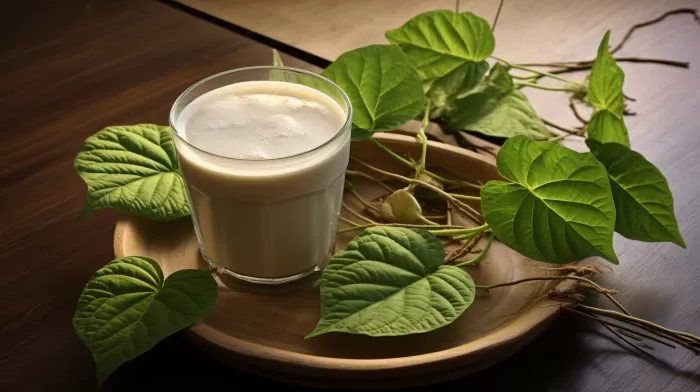Imagine discovering an effective natural remedy for anxiety, insomnia, and even menopausal symptoms, only to find out it might also damage your liver. Unfortunately, that’s precisely the enigma that surrounds the kava plant.
Kava, a plant native to the Pacific Islands, has long been consumed by islanders with seemingly no adverse effects. However, when it gained popularity as an herbal supplement in the United States and other Western countries in the 90s, reports of liver damage began to surface, leaving scientists and consumers utterly puzzled.
The History and Benefits of Kava
Pacific Islanders have used kava for centuries as a part of their traditional medicine and cultural practices. It is often prepared as a beverage or used in various forms – extracts, tablets, and topical solutions – to address ailments such as anxiety, insomnia, and inflammatory conditions. Some studies have also found kava effective in alleviating neuropathic pain (1) and treating menopausal symptoms (2).
Due to its calming and sedative effects, kava became a popular natural remedy for people in Western countries suffering from anxiety and sleep disorders. However, it wasn’t long before reports of liver damage emerged, causing concerns about the supplement’s safety.
The Liver Damage Mystery
The connection between kava and liver damage in some Western consumers was both surprising and baffling, as Pacific Islanders have historically consumed the plant without any significant adverse effects. This led to regulatory bodies in the US, UK, and Canada banning or restricting products containing kava.
The US Food and Drug Administration (FDA) is among those urging people with liver problems to consult their healthcare practitioner before using kava, while the National Center for Complementary and Integrative Health (NCCIH) maintains that kava’s primary uses – anxiety, insomnia, and menopausal symptoms – should be balanced with the potential risk to Westerners.
An extensive review of 85 studies on kava toxicity, however, has not provided a definitive answer as to why the plant may be toxic to some and not others. Researchers are still unable to pinpoint an “indisputable reason for the increased prevalence of kava-induced hepatotoxicity in Western countries.”
Possible Reasons for the Kava Controversy
There are several theories as to why kava could pose a higher risk for Western consumers. One hypothesis revolves around a genetic difference in liver enzymes that could be responsible for metabolizing kava differently in some individuals (3). These differences could lead to an increased risk of liver damage in some Westerners compared to Pacific Islanders.
Another theory suggests that the difference in risk may stem from the way kava is prepared and consumed. Traditional Pacific Islander methods for making kava drinks involve using the roots of the plant, whereas Western kava supplements might include other plant parts, such as stem peelings and leaves, which contain compounds that are toxic to the liver (4).
It’s also worth considering the role of additional factors in Westerners experiencing adverse liver effects. Alcohol and medication use could play a part in the liver damage observed in some cases, as they can place added stress on the liver and may interact negatively with kava.
Guidance for Kava Use
The mystery of kava’s liver toxicity in some Western consumers is far from solved, but there are steps you can take if you are interested in trying kava while reducing potential risks.
- Consult your healthcare practitioner before starting a kava supplement, especially if you have a history of liver problems or are taking medications that might interact with kava.
-
Prioritize products sourced from reputable companies, taking care to avoid those containing other plant parts besides the roots.
-
Be cautious of combining kava with other substances that are known to stress the liver, such as alcohol and certain medications.
-
Pay extra attention to any adverse effects during your initial use of kava and stop immediately if anything concerns you.
The benefits of kava are undoubtedly appealing to many who struggle with anxiety, insomnia, and other health issues. Still, it’s essential to stay informed, take precautions, and listen to your body to navigate the potential risks associated with this mysterious plant.



